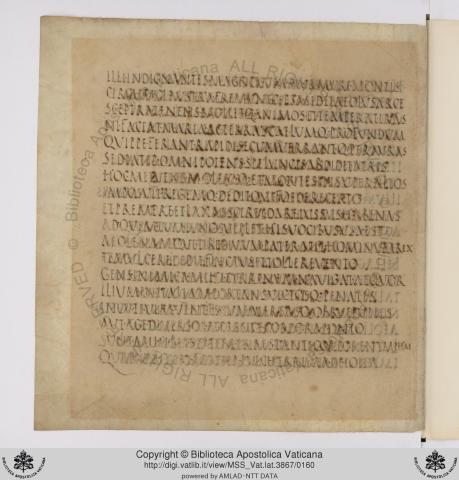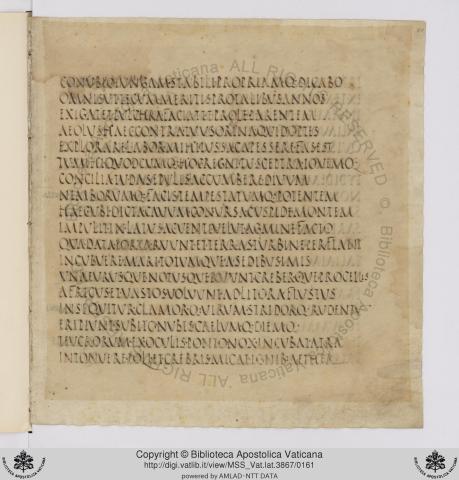CORE VOCABULARY
Aeolus, ī, m.: Aeolus. 1. The god who ruled over the winds, 1.52. 2. A follower of Aeneas from Lyrnesus, 12.542.
mulceō, mulsī, mulsus or mulctus, 2, a.: to stroke; lick, 8.634; (fig.), soothe, caress, comfort, 1.197; mitigate, soften, calm, 1.66; to make harmonious, charm, 7.34.
Tyrrhēnus, a, um: adj. (Tyrrhēnī), Tyrrhenian; Etruscan, Tuscan, 1.67; subst., Tyrrhēnus, ī, m., a Tuscan, 10.787.
nāvigō, āvī, ātus, 1, n. and a.: to sail; set sail, 4.237; w. acc., sail over, sail upon, 1.67. (nāvis and agō)
Īlium, iī, n.: Troy, 1.68, et al.
Ītalia, ae (Ī by poetic (epic) license), f.: Italy, 1.2, et al.
Penātēs, ium, m.: gods of the household; hearth-, fireside gods, 2.514, et al.; tutelary gods of the state as a national family, 1.68; (fig.), fireside, hearth, dwelling-house, abode, 1.527. (penus)
incutiō, cussī, cussus, 3, a.: to strike into or upon; add, put into, 1.69. (1. in and quatiō)
summergō, mersī, mersus, 3, a.: to plunge beneath; submerge, sink, 1.40. (sub and mergō)
obruō, uī, utus, 3, a.: to cover over; bury; overwhelm, 1.69; overpower, 2.424; destroy, 5.692.
puppis, is, f.: the hinder part of a ship; the stern, 5.12; (by synecdoche), a vessel, boat, ship, 1.69; (meton.), crew, 8.497.
dīsiciō, iēcī, iectus, 3, a.: to throw, cast asunder; overthrow, demolish, 8.355; scatter, disperse, 1.70; cleave, 12.308. (dis- and iaciō)
bis: (adv.), twice, 1.381. (in composition bi-)
septem: (num. adj.), seven, freq.
praestāns, antis, comp., praestantior, ius: excellent, superior, distinguished, 5.361; w. gen., 12.19.
nympha, ae, f.: a bride, a maiden; a nymph, one of the inferior deities, presiding over fountains, woods, etc., 1.71, et al.
Dēiopēa, ae, f.: a nymph in the train of Juno, 1.72.
cōnūbium (sometimes trisyll.), iī, n.: nuptials, marriage, 1.73; wedlock, nuptial rite, 3.136; marriage tie, nuptial bond, 3.319. (con- and nūbō, wed)
stabilis, e: adj. (stō), steadfast, lasting, permanent, 1.73.
dicō, āvī, ātus, 1, a.: devote, consecrate, 5.60; pronounce, 1.73. (rel. to dīcō)
meritum, ī, n.: a thing deserved; desert; service, favor, merit, 1.74. (mereō)
prōlēs, is, f.: that which springs forth; offspring, race, progeny, 1.75; lineage, 3.180.



